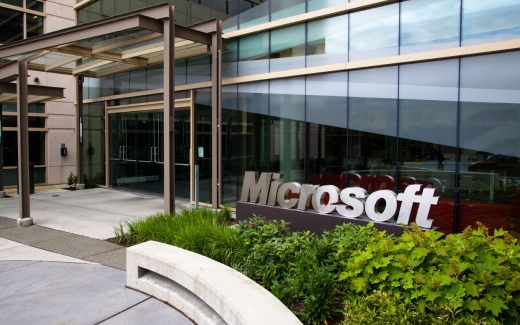Microsoft (NASDAQ: MSFT) is planning to release a version of its Office software suite for Google’s (NASDAQ: GOOG) Android operating system, according to ZDNet’s Mary Jo Foley. Notably, this version of Office will be optimized for touch screens, and could be released on Android before Microsoft’s own Windows 8.
As consumers and business users increasingly embrace non-Windows operating systems, Microsoft’s Office unit stands to benefit from its expansion to other platforms. Microsoft, however, could weaken Windows’ position in the process.
Office goes mobile
ZDNet believes this version of Office will be released in early 2015. If so, it will come roughly one year after the release of Office for the iPad, Microsoft’s first foray into expanding its popular software suite to rival mobile platforms.
Until earlier this year, tablet buyers who needed Office were forced to purchase a device running Microsoft’s Windows 8, such as the Surface. Despite this restriction, Windows tablets have not sold particularly well, accounting for less than 10% of the overall tablet market.
In contrast, Office for the iPad has been a tremendous success, rocketing to the top of the app store, and being downloaded 27 million times in the first two months after its release. Although the app is technically free, creating and editing documents requires a subscription to Office 365, a service that costs at least $70 per year.
ALSO READ: States Spending the Most (and Least) on Education
Android extends beyond tablets
Office for Google’s Android could see similar levels of success, but it could also put pressure on Microsoft’s Windows in a unique way.
Office for the iPad is restricted to the iPad — a platform with just two different screen sizes and a handful of hardware configurations. Google’s Android, however, is highly fragmented, powering everything from smartphones with 3-inch displays to all-in-one PCs equipped with 21-inch monitors.
Android-powered PCs haven’t seen much adoption, but OEMs continue to release new models. The recently unveiled SlateBook PC, for example, is a 14-inch Ultrabook powered by Google’s Android operating system. Allowing these devices to access Office could make them attractive alternatives to traditional Windows-powered machines.
Nadella continues to move Microsoft in a new direction
Despite the risk, Microsoft appears poised to move forward, embracing a new strategy that doesn’t depend entirely on Windows. Office for Google’s Android would be another example of CEO Satya Nadella taking Microsoft in an entirely new direction.
Thank you for reading! Have some feedback for us?
Contact the 24/7 Wall St. editorial team.





